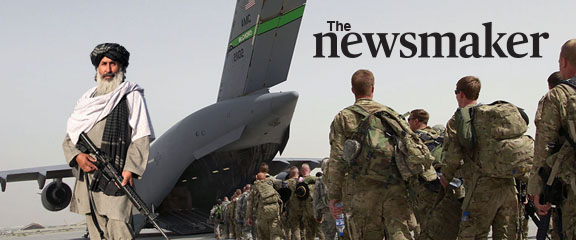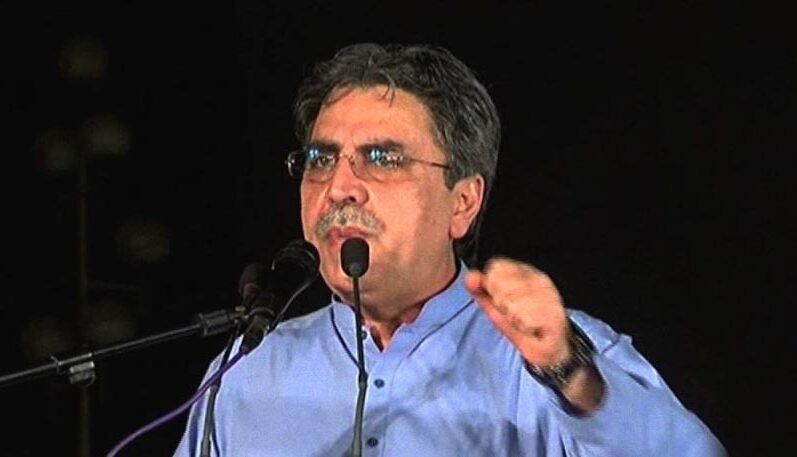
is a Pakistani politician who is the senior deputy convenor and leader of MQM-P.
Speculations are rife in the mainstream and social media whether the Pakistan Tehreek-e-Insaaf (PTI) allies hold the ranks when the opposition moves a no-trust move against Prime Minister Imran Khan. In this context, a lot of meaning was given to the Muttahida Qaumi Movement-Pakistan’s (MQM-P) meetings with the opposition parties – from the Pakistan Muslim League-Nawaz (PML-N) to the Awami National Party (ANP) and the Jamiat Ulema-e-Islam-Fazal (JUI-F).
Narratives Magazine talks to Amir Khan, the MQM-P’s senior deputy convener, to find out what was the agenda of those meetings and discuss a host of other issues.
Is the MQM-P stands committed to the PTI-led coalition government?
Amir Khan: The MQM is a coalition partner of the PTI. Our agreement with the PTI aims to resolve many of the problems of Karachi, Hyderabad, and other urban centres of Sindh. And as per this agreement, the federal government has already taken several steps. For example, the Green Line Bus project has been completed. The federal government has also earmarked funds for K-4 (water supply project for Karachi). The establishment of a university in Hyderabad was one of our key demands. Although work has not started on this project, its charter has been approved. Another important issue was the census. In Pakistan’s entire history, we never had a census on time. The last census held in 2017 – under the PML-N government – was highly controversial as Karachi’s population was grossly under-reported. In a meeting, the CCI (Council of Common Interests) decided to hold a sample census in five per cent of the blocks, but that decision was never materialised. Since then, we have been demanding fresh and early census. This demand has finally been accepted. And now, instead of 2027, a new census will be done in 2023 – four years earlier. The government has already allocated funds for this exercise, and its preparatory work has started. It’s a huge success.
However, many other issues remain unaddressed. The top among them is the injustice meted out to the urban population, which is even being deprived of its quota of 40 percent in government jobs. Those who are supposed to give jobs belong to only one community of Sindh, and they have not been fair to us. On the quota marked for urban Sindh, recruitments are made on fake domiciles. The beneficiaries are individuals belonging to a particular political party – the PPP. During the last 12 to 13 years, some 300,000 provincial government jobs were given in Sindh. Out of them, candidates belonging to the urban areas got less than 10,000 jobs. And even in these 10,000 jobs, most recruitments were done on fake domiciles.
In a nutshell, many of the points of our agreement with the PTI have been accepted. Still, on others, implementation remains way too slow.
In the 2018 elections, the MQM was deprived of many seats because of malfunctioning of the RTS (Results Transmission System). The PTI got 14 seats in the National Assembly from Karachi. There were expectations that the ruling party would make the mega-city a priority, including Prime Minister Imran Khan, who won a seat from here. But that never happened.
Karachi, despite all its mega civic problems, a crumbling infrastructure, rampant street crimes, and poor healthcare and education systems, still generates 65 to 70 percent of all the country’s revenues. The Sindh government has usurped all the powers of the local bodies and made them redundant and powerless. Yet, this resilient city continues to deliver. We think the prime minister should have focused more on Karachi during the last three and a half years, but he visited Karachi only a few times and that too just for a few hours. Nothing has been done to stop the PPP from committing injustices and atrocities on urban Sindh.
We demand that along with the National Finance Commission, the federal government must ensure the implementation of the Provincial Finance Commission for the just disbursement of resources.
“MQM stands with the PTI despite reservations”
Amir Khan
The MQM-P’s central leadership, including yourself, have been meeting with top opposition leaders. What’s the plan?
Amir Khan: The PPP bulldozed the new LG law that made the city governments literally powerless. We staged protests, rallies, and conferences. Many political parties, including the ANP, the PML-N, the JUI-F, and the GDA, supported our demands. We met their leaders only to thank them. As we held these meetings, the political situation started to heat up. There was a meeting between the PML-N and the PPP leadership amidst all the talk of a no-confidence move. While thanking them, we also discussed the changing situation as a political party. They (opposition leaders) also asked that the MQM play its role. We heard them, but everywhere we made our position clear through the media that we are an ally of the PTI. The PML-N complain a lot about victimisation, but in Sindh, greater injustices are being inflicted on the MQM by the PPP. All these issues were part of our discussion. We will put the details of these discussions before the party’s coordination committee and our workers. Whatever is beneficial for the country and its people, we will decide accordingly.
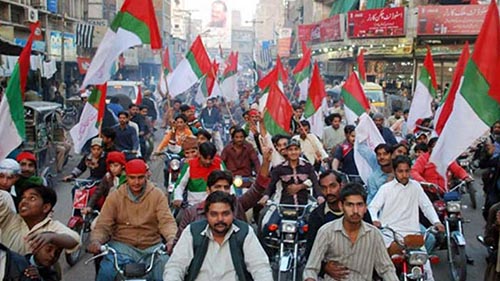
There is a point-of-view that the PTI government is unjustifiably being targeted by the opposition for the country’s economic woes. Most of the challenges, including inflation and accepting the harsh IMF conditions, remain beyond the control of this government. What’s your take?
Amir Khan: Indeed, inflation is a global problem. Accepting the IMF’s harsh conditions also remains highly unpopular. But we believe that any government would have to accept these conditions. However, the government could have improved its governance and should have found ways to give relief to the common man despite challenges. On this front, the government is lacking.
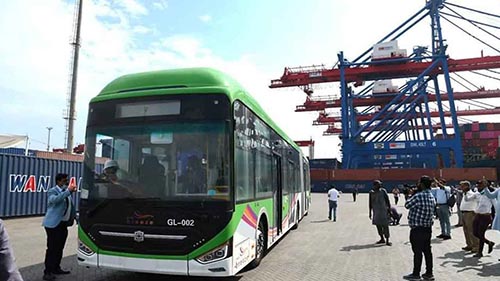
We also see a lot of mismanagement. For instance, the gas crisis could have been managed better with some planning. The winter gas shortage had been looming, but nothing was done about it. The government wasn’t able to import LNG on time. Similarly, the urea crisis could have been handled. The entire country is now in trouble because of such shortages. Our industrial production is hurt due to the gas shortages. Even the industrialists were forced to hold demonstrations.
Who is responsible for the political polarisation? What can be its impact?
Amir Khan: The way both the government and the opposition attack one another and all the mudslinging and foul language they use, are unsuitable for the political process. Both sides should show restraint and must not take their differences to a level where they can’t even sit together when there is a need.
The government has greater responsibility. When one becomes prime minister, he should listen to everyone and take people along. One feels that this is one weakness of the government: it is not even prepared to talk to the opposition, which has a constitutional role in the system. The central government should adopt a bit soft and flexible approach. In Sindh, we see the same problem. The PPP treats the provincial opposition the same way.
Barring General Pervez Musharraf, historically, the MQM has never been able to work with any of its coalition partners – from the PPP to the PML-N. Will it be different this time around?
Amir Khan: A question was asked a few days back: Are we satisfied with Imran Khan’s performance? The short answer is that we have been in coalition governments with the PPP several times and also partnered with the PML-N government. We were dissatisfied with both of them. And we were not the only ones. The entire country was unhappy with them as problems of the people compounded.
Today, again, we see economic deterioration. See how the rupee has slumped against the dollar. If we are dissatisfied with the PTI today, the same dissatisfaction was with the PPP and the PML-N. The promises made by those two parties were never fulfilled.
Our responsibility as a political force is to highlight the issues of people and our voters. If we don’t fulfil this responsibility, what else would we do? There is a lot of room for improvement. But we also say that the PTI government has a right to complete its five-year term. And the opposition also has the constitutional right to bring a no-confidence vote. All should act within the law and constitution. The MQM will not support any unconstitutional move.
Has the PTI failed to come up to your expectations?
Amir Khan: The issue is not of our expectations. The point is whether the PTI has been able to come up to the expectations of the masses. Today, people are facing a lot of problems. And if the PTI, or for that matter, the PML-N, or the PPP are not meeting the people’s expectations, how can they come up to our expectations?
Coming to the MQM’s own challenges… Do you think the next elections would be more challenging for the party given its own divided house and efforts by the rivals to ingress in the MQM-dominated areas?
Amir Khan: People want that we all should get united. The MQM also desires that we all converge on a single platform. The last six to seven years have been tough on the MQM. The party faced a crisis-like situation because of an operation by the state. The Aug 22, 2016 incident happened, and the MQM-P had to announce its disassociation from its founder (Altaf Hussain). The MQM appeared in disarray, and we had to save it. In Pakistan’s entire history, no party disassociated itself from its founder, but we did it for Pakistan. Anti-Pakistan rhetoric remains unacceptable to us. And we kept the party flag fluttering despite all the odds. Then, there was the issue of Farooq Sattar. However, the MQM still wants to take everyone along. Our doors are open for all. But if someone wants to erase the name and symbol of the MQM and form a new party, this is also unacceptable. We are ready to welcome everyone with full respect if they come under the flag and banner of the MQM. We all should work together, but we also say there should be no preconditions for rejoining the party. Compared to the traditional political parties, the MQM operates differently. In the MQM, everyone has to follow the party’s rules and regulations. From our party convener to an ordinary worker, no one is above them. Also, those who join us, all have to work under a discipline.
Do you think the next elections would be difficult for the party in this situation?
Amir Khan: In my opinion, MQM’s vote bank remains intact. In the 2002 elections, the MQM secured around 700,000 votes. In the 2018 elections, when the MQM was divided, financially weak, and under challenging conditions, we got around 750,000 – higher than the previous elections. In 2018, it was unfortunate how the RTS broke down, and the results were changed. Everyone knows in Karachi the way our seats were snatched. Even today, we are financially hard-pressed. We are barred from carrying out our charity work. Our charity wing is not allowed to operate and collect zakat, fitra, or the hides of sacrificial animals. Therefore, supporting the families of our martyrs has become an uphill task, and we have to do it through our party funds. But we still are confident that in the next elections, we will perform better than in the past.
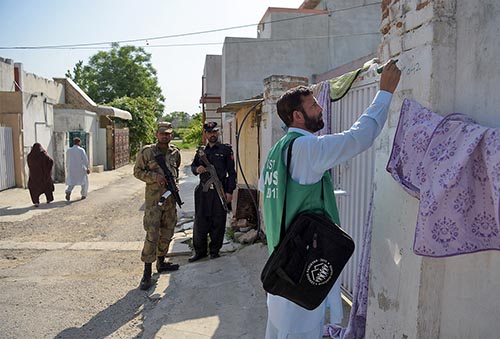
How do you see the PPP’s agreements with the Jamaat-e-Islami and the PSP?
Amir Khan: Firstly, I will say that the MQM and the Jamaat-e-Islami have a lot of differences. Yet, on the issue of the LG system, we are delighted to see that the Jamaat-e-Islami embraced the same slogans and demands that the MQM had introduced. In the past, however, the Jamaat-e-Islami used to accuse us of fanning ethnicity and hate by making such demands that include giving financial and administrative powers to Karachi. Now all the Jamaat-e-Islami banners have the same slogans that the MQM introduced.
As far as their sit-in and agreement with the PPP are concerned, it stands exposed when the chief minister, in the presence of (JI leader) Hafiz Naeem, said that all the points of the agreement were already part of the new LG law. But if the Jamaat-e-Islami wants to take credit, they can do it by all means. However, the matter remains that there has been no agreement – it is just an eyewash. The Jamaat must have realised by now that the PPP managed to manipulate them.
The other (the PSP) was also given a lollipop. They needed an excuse to end their sit-in. There were hardly a few dozen people at the sit-in. They perhaps themselves asked the PPP to come and give them a lollipop.
The MQM’s demand is that the provincial government implement the Supreme Court’s ruling on granting powers to the LGs according to the constitution. The MQM filed this petition in 2017, and by the grace of Almighty Allah, a decision finally came.
Do you really think that the PPP will follow the Supreme Court’s directives on empowered Local bodies?
Amir Khan: If the PPP again drags its feet on the issue, we will raise it with full force in the assembly, roads and wherever possible. The Supreme Court decision should be implemented. If the PPP fails to do so, our options are open – from the courts and the assembly to the roads. The Supreme Court’s decision is beneficial not just for Sindh but for the entire country. Across Pakistan, now the people can go to court if their respective provincial governments fail to allow empowered local governments.
The PPP is eyeing to make inroads in Karachi’s district central. Is it a challenge for your party?
Amir Khan: First, let me say that the MQM’s demand for new administrative units is not just for Sindh but for the entire country. When we talk of new administrative units, they (the PPP) scream and shout that we want to divide Sindh – the ‘dharti maa’ (motherland). But we say that provinces are not ‘dharti maa’. It is the country — our Pakistan – which is our motherland. When we call for new administrative units, they don’t like it. However, they keep dividing Karachi, carving out one district after another just to suit their interests and ensure seats for themselves. This is unacceptable, and we are already in court on this issue.
Coming to your question, the PPP has the right to carry out their work. But urban Sindh never votes for the PPP because of its bias against them. The PPP takes revenge on the urban areas because they do not vote for this party. Whichever candidate they bring, they won’t get votes in the Urdu-speaking areas. Those of our Urdu-speaking friends who are with the PPP, even they don’t get fair treatment. If the PPP treats Sindhis and Mohajirs the same, why can’t even for once the chief minister Sindh be a Mohajir? We do not say that a Sindhi speaker shouldn’t be chief minister, but why not an Urdu speaker for a change, from the PPP’s ranks.
Murtaza Wahab is their administrator in Karachi. He belongs to Karachi and is their own man. Yet, the PPP doesn’t transfer powers even to him. People of Karachi understand the PPP and its narrow self-serving politics. They would never vote for this anti-Karachi party.
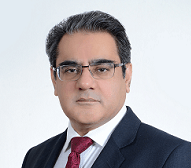
The writer is a senior journalist and managing editor, Narratives.


